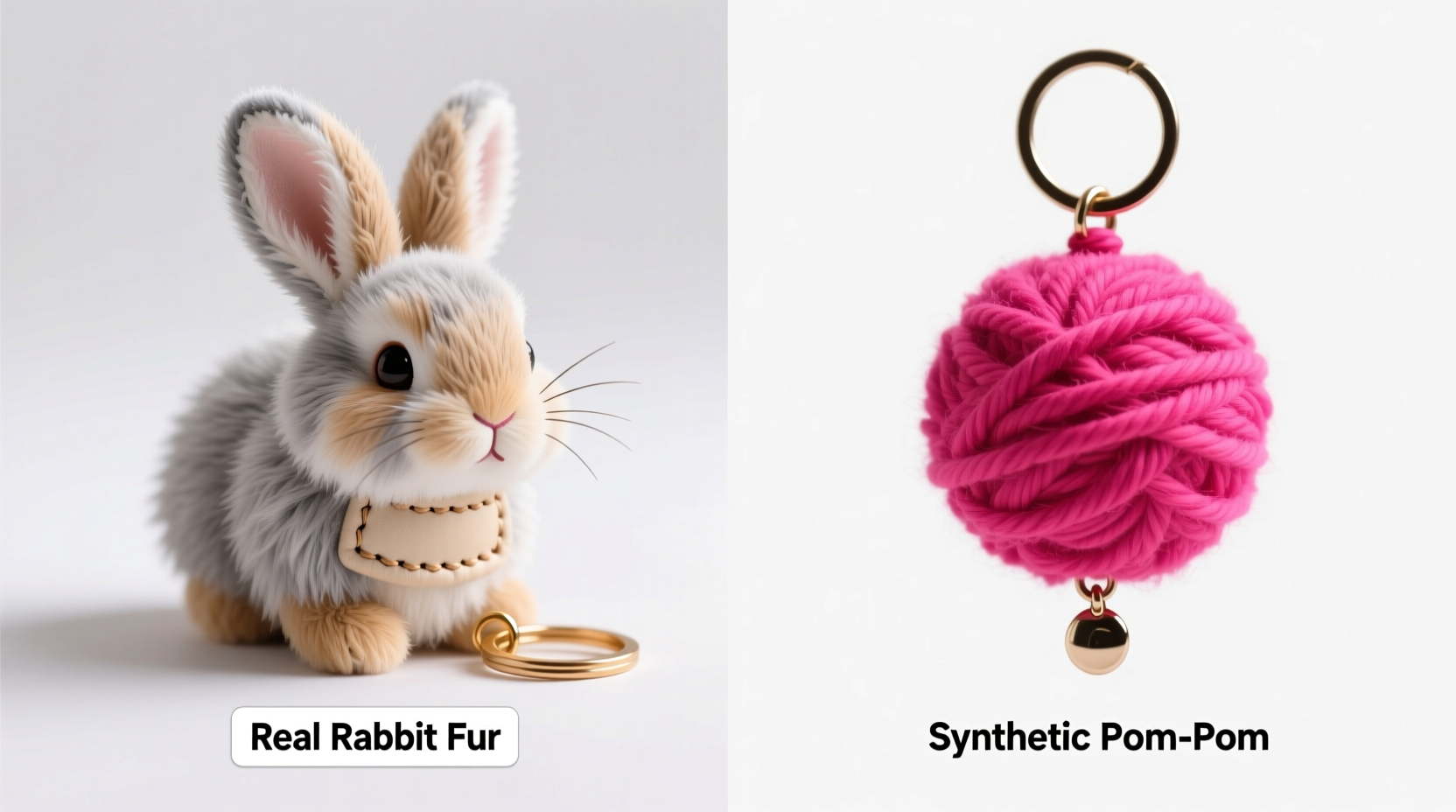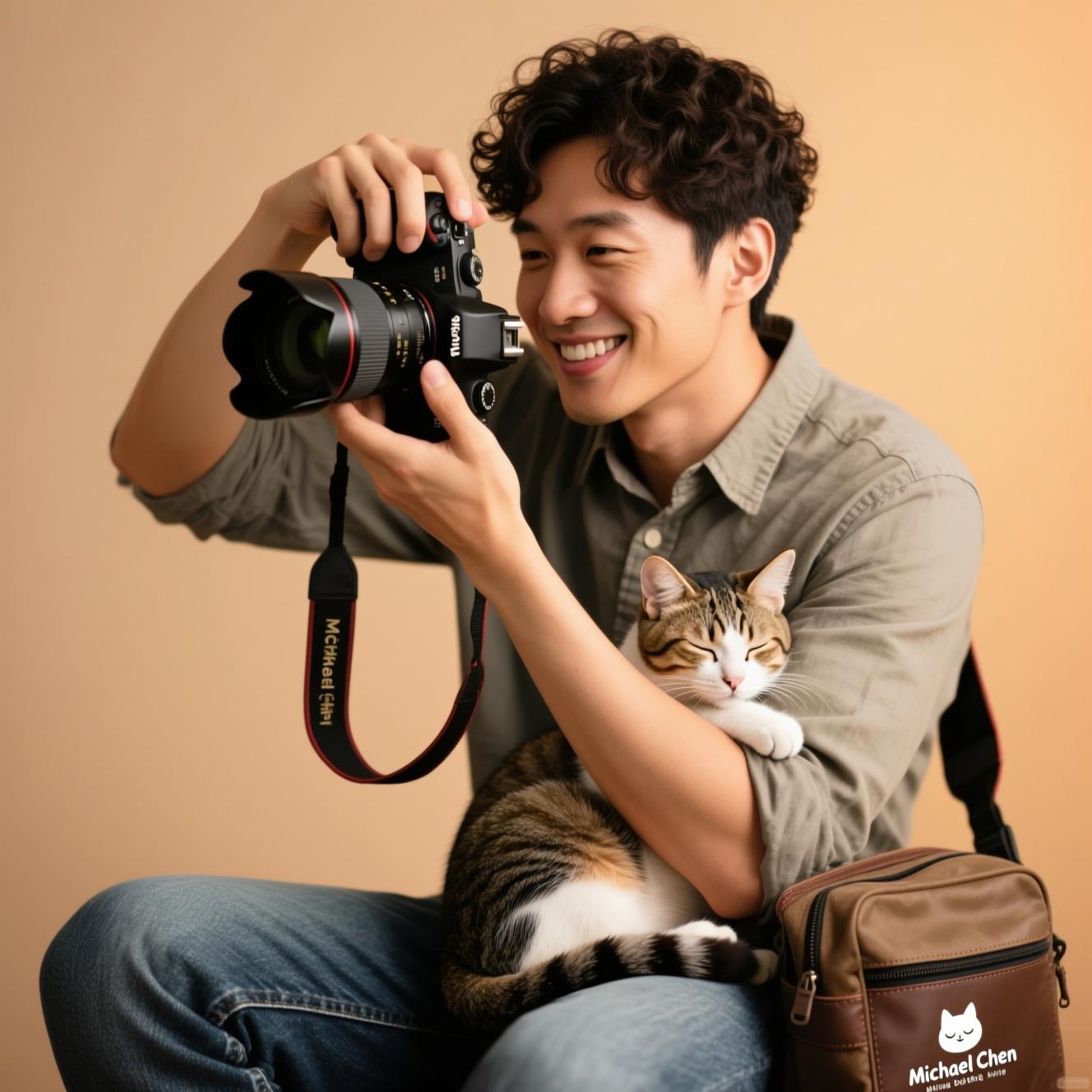Keychains have evolved from simple metal loops to expressive fashion accessories. Among the most iconic styles are the soft, fluffy rabbit fur ball and the vibrant, synthetic pom pom. Once a staple on backpacks and handbags, the real rabbit fur keychain has faced growing scrutiny—both ethical and practical—while its colorful pom pom counterpart has surged in popularity. But which one truly dominates today’s market? Is the rabbit fur ball a fading relic of past trends, or does it still hold a niche among collectors and traditionalists?
This article explores the current state of both keychain types, comparing their appeal, sustainability, cultural significance, and consumer behavior. Whether you're a fashion enthusiast, eco-conscious shopper, or just curious about evolving accessory trends, this breakdown offers clarity on where these two fluffy favorites stand in 2024.
The Rise and Fall of Real Rabbit Fur Keychains

Rabbit fur keychains were once ubiquitous in the early 2000s, especially among teens and young adults. Their soft texture, natural appearance, and subtle luxury made them desirable add-ons to wallets, zippers, and phone cases. Often sold in neutral tones like white, gray, or brown, they added a touch of elegance without being flashy.
However, their popularity began to wane as awareness around animal welfare grew. Investigations into fur farming practices, particularly in regions with lax regulations, revealed inhumane conditions. Animal rights organizations highlighted that many rabbit fur products—including small trinkets like keychains—were sourced from farms where animals were kept in cramped cages and killed for pelts not intended for high-end fashion, but for novelty items.
“Using real fur for something as disposable as a keychain sends the wrong message about value and ethics.” — Dr. Lena Torres, Ethical Fashion Researcher at Sustainable Style Institute
As public sentiment shifted, major retailers and online marketplaces began phasing out real fur products. In 2021, eBay banned all fur sales, including vintage and small accessories. Etsy followed suit with stricter labeling requirements. This regulatory pressure, combined with changing consumer values, significantly reduced the availability and appeal of genuine rabbit fur keychains.
Pom Poms Take Center Stage
In contrast, synthetic pom poms have experienced a renaissance. Made from acrylic, wool blend, or recycled fibers, these cheerful tassels come in every color imaginable—from neon pink to glitter-infused gold. They’re lightweight, affordable, and fully customizable, making them ideal for self-expression.
School spirit, LGBTQ+ pride, K-pop fandoms, and seasonal themes (like Halloween or Christmas) have all fueled demand for pom poms. Brands like Claire’s, Hot Topic, and even luxury labels such as Gucci and Balenciaga have incorporated oversized pom poms into their accessory lines, often as part of limited-edition collections.
Unlike rabbit fur, pom poms are cruelty-free, machine-washable, and more durable in daily use. They don’t shed excessively, resist moisture better, and maintain their shape longer. For parents, teachers, and eco-minded buyers, this makes them a far more practical choice.
Comparing Key Features: Rabbit Fur vs Pom Pom
| Feature | Rabbit Fur Keychain | Pom Pom Keychain |
|---|---|---|
| Material Source | Animal-derived (rabbits) | Synthetic or plant-based fibers |
| Ethics | Controversial; involves animal farming | Cruelty-free and vegan |
| Durability | Prone to matting, shedding, water damage | Resilient, washable, retains shape |
| Variety & Customization | Limited to natural colors and textures | Endless colors, patterns, sizes |
| Price Range | $5–$15 (higher for ethically sourced) | $1–$10 (bulk discounts available) |
| Environmental Impact | Higher footprint due to farming and processing | Lower impact, especially with recycled materials |
Market Trends and Consumer Behavior
Data from Google Trends shows a steady decline in searches for “real rabbit fur keychain” since 2017, while queries like “colorful pom pom keychain” and “custom pom pom charms” have risen sharply. Social media platforms tell a similar story: TikTok videos featuring DIY pom pom crafts have garnered over 200 million views under hashtags like #PomPomArt and #CraftKeychain, whereas content related to fur keychains is rare and often criticized.
A mini case study illustrates this shift clearly:
**Mini Case Study:** In 2019, a small boutique in Portland sold handmade rabbit fur keychains sourced from a local farm claiming humane practices. Despite transparent labeling, customer feedback turned negative after an influencer exposed inconsistencies in the farm’s certification. Sales dropped by 70% within six months. The owner pivoted to selling recycled yarn pom poms and reported higher profits and better customer engagement by 2021.
This reflects a broader trend: authenticity and transparency matter, but so does alignment with modern values. Even when fur is claimed to be “ethically sourced,” many consumers prefer to avoid ambiguity altogether.
How to Choose the Right Keychain Today
If you're deciding between a rabbit fur ball and a pom pom keychain, consider your priorities. Use this checklist to guide your decision:
- Ethics First: Do you want a cruelty-free accessory?
- Durability: Will it withstand rain, friction, and daily wear?
- Style Flexibility: Do you want to match it with different outfits or moods?
- Budget: Are you looking for affordability or collectible value?
- Sustainability: Does the material align with eco-friendly principles?
For most users, pom poms win across all categories. However, there remains a niche market for vintage or antique fur keychains, particularly among collectors of retro fashion. These are typically secondhand items, not newly produced, and valued more for nostalgia than function.
Frequently Asked Questions
Are real rabbit fur keychains illegal?
No, they are not universally illegal, but several countries and platforms have banned new fur sales. In the U.S., sale is permitted but declining due to market forces and brand policies. Always verify sourcing and labeling if purchasing.
Can I clean a rabbit fur keychain?
Yes, but carefully. Use a soft brush and mild dry cleaner formulated for fur. Avoid water, as it can cause matting and odor. However, due to maintenance challenges, many owners opt to retire older pieces rather than restore them.
Are pom poms recyclable?
Acrylic pom poms are technically recyclable but often end up in landfills due to lack of infrastructure. Wool-based or biodegradable fiber pom poms are better options for eco-conscious buyers.
Conclusion: The Fluffy Future of Keychains
The evidence is clear: pom pom keychains have largely replaced real rabbit fur in mainstream culture. Driven by ethical concerns, environmental awareness, and creative versatility, synthetic pom poms are not just a trend—they represent a lasting shift in how we view accessories. They celebrate individuality without compromising values.
While rabbit fur keychains may linger in vintage shops or private collections, their role in everyday fashion has faded. The future belongs to bold colors, playful designs, and responsible production—all embodied in the humble pom pom.









 浙公网安备
33010002000092号
浙公网安备
33010002000092号 浙B2-20120091-4
浙B2-20120091-4
Comments
No comments yet. Why don't you start the discussion?